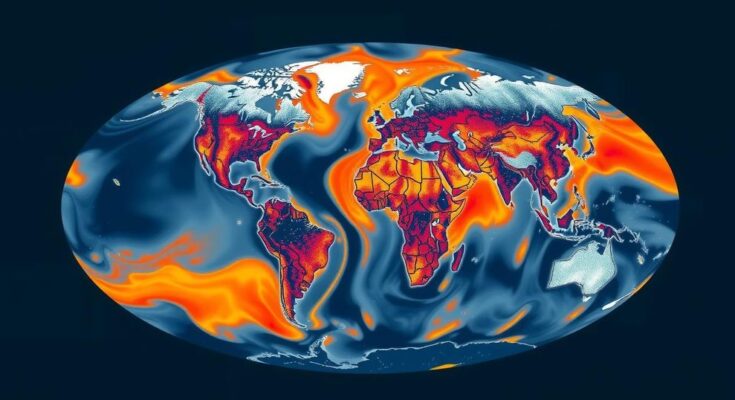COP29 increased climate finance to $300 billion annually by 2035, yet this is insufficient as climate change, influenced by El Niño and La Niña, continues to affect over 1.6 billion people and cause economic losses of up to $300 billion yearly. Low-income countries, particularly in Africa, bear the brunt, with GDP losses of 5-10% yearly. Advocacy for climate justice is essential to support adaptation and resilience in affected communities.
The recent conclusion of the United Nations Climate Change Conference (COP29) in Baku heralded a new climate agreement, increasing climate finance for developing nations to $300 billion annually by the year 2035. While this development represents progress, it nevertheless falls substantially short of what is required to adequately address the urgent needs of those most affected by climate change. The global community stands on the precipice of critical thresholds, with the current year potentially marking the first to surpass the 1.5°C limit that aims to mitigate the most severe impacts of climate change.
The interplay between climate change phenomena such as El Niño and La Niña has exacerbated extreme weather events, affecting over 1.6 billion individuals in the past five years alone. The estimated economic losses attributed to climate-related disasters range significantly, between US$115 and 300 billion per year. Tragically, low-income nations, which often lack the resources necessary for effective response and adaptation strategies, suffer the most significant consequences. In Africa, for instance, the impact of climate change may result in GDP losses of 5-10% annually, highlighting the severe economic toll.
In addressing these disparities, it is imperative to advocate for climate justice while providing support for adaptation and resilience-building efforts in climate hotspots. The populations in these areas contribute the least to global emissions, yet they are disproportionately affected by climate disruptions.
The context of the article stems from the urgent discussions held at COP29 regarding climate finance and its significance for developing countries. Climate change, alongside fluctuating weather patterns such as El Niño and La Niña, poses grave risks to global stability and economic viability. The increasing frequency and severity of climate disasters have drawn attention to the disproportionate effects on low-income nations, particularly in regions such as Africa, necessitating a robust climate finance response.
In summary, while COP29 has made strides in increasing climate finance, there remains an urgent need for greater efforts to address the pressing climate crisis. The historical context of climate change alongside extreme weather events continues to threaten millions worldwide. Moving forward, advocating for climate justice and enhancing support for vulnerable communities are crucial steps in mitigating these effects and fostering a more equitable response to climate disruption.
Original Source: reliefweb.int




